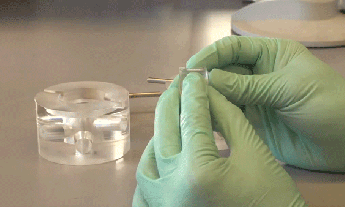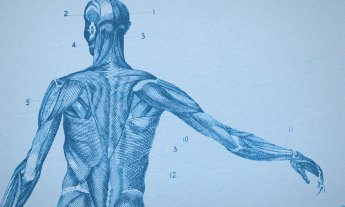Bone marrow — on a chip
We’re all pretty familiar with an insane amount of information being contained within a teeny tiny object: Frederick Balagadde programmed an entire bio-lab on a microchip; Geraldine Hamilton builds organs and body parts on a chip to test medical cures. Now, scientists from Harvard have announced “bone marrow on a chip.” So far, it’s mouse bone marrow, but they’ve been able to sustain the biomaterial for a week after it was harvested, which is a big deal. It’s early days, of course, but the implications are huge. As they write, the new chip could be used “to maintain a cancer patient’s own marrow temporarily while he or she underwent marrow-damaging treatments such as radiation therapy or high-dose chemotherapy.”
The baloney detection kit
In this charming piece, Maria Popova of Brainpickings unearths Carl Sagan’s rules for bullshit-busting and critical thinking. The “baloney detection kit,” she writes, is “a set of cognitive tools and techniques that fortify the mind against penetration by falsehoods.” I particularly liked #5: “Try not to get overly attached to a hypothesis just because it’s yours. It’s only a way station in the pursuit of knowledge.” Sheepish hands up if you’re guilty of that sin don’t lie.
Well, that’s one way to combat climate change
As a longtime vegetarian, I’ve pretty much nailed my talking points on the topic, with quick soundbites I can roll out as necessary to reassure some that I sure am getting enough protein, thanks, or others that actually my decision is no reflection on their personal decisions and I am in fact not secretly judging them for gnawing on a veal bone. But now I get to add another thread to the discussion: as this Slate piece details, the meat industry contributes about 14.5 percent of the world’s greenhouse gas emissions. “Universal veganism would reduce agriculture-related carbon emissions by 17 percent, methane emissions by 24 percent, and nitrous oxide emissions by 21 percent by 2050,” writes L. V. Anderson. Then she promptly tempers the unexpected benefits of going meat-free by adding: “If the world actually did collectively go vegetarian or vegan over the course of a decade or two, it’s reasonable to think the economy would tank.” Oh.



















